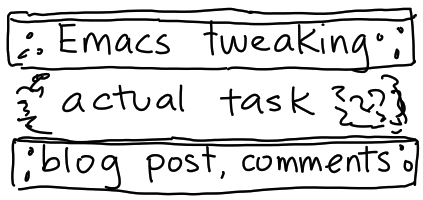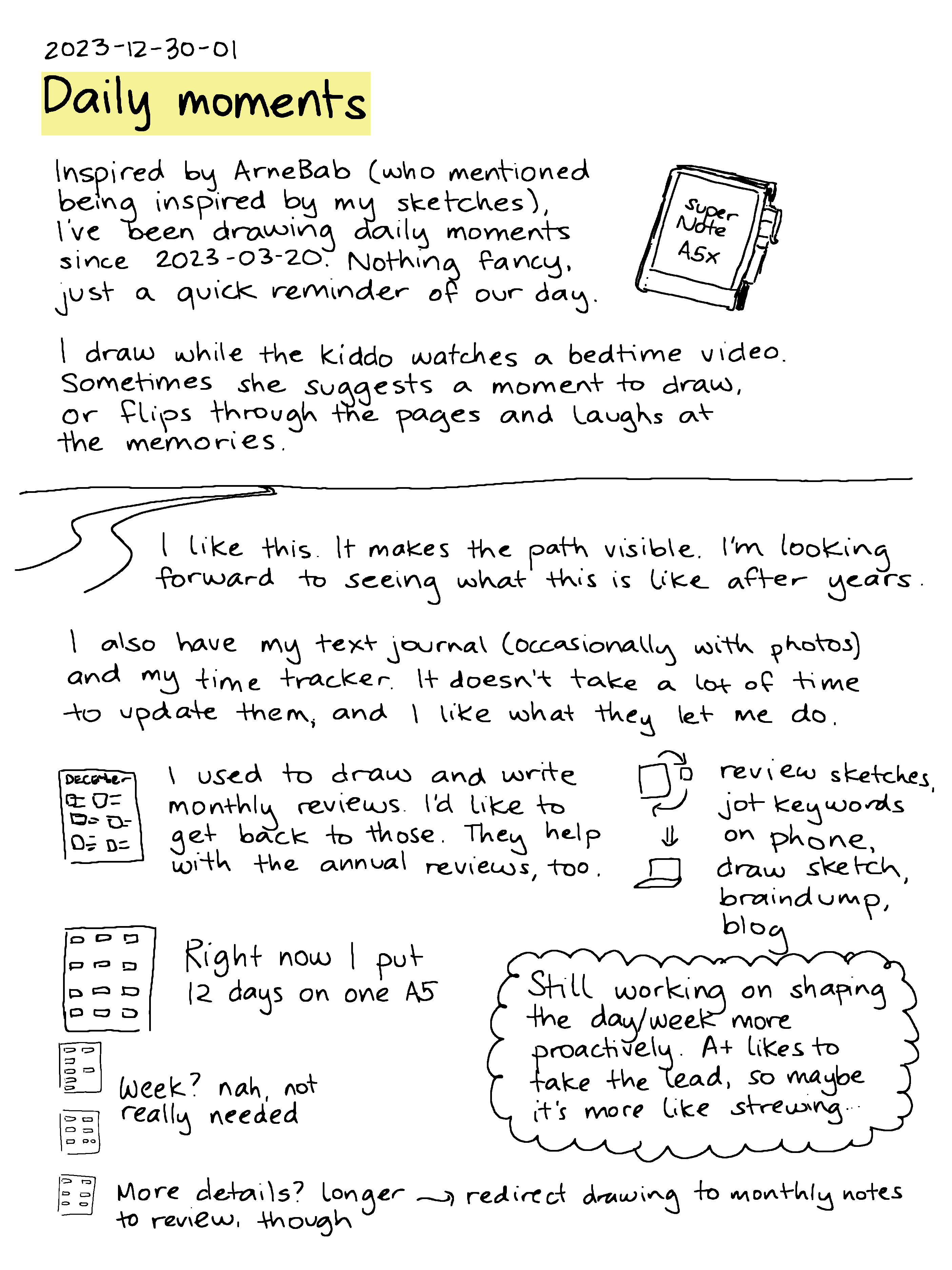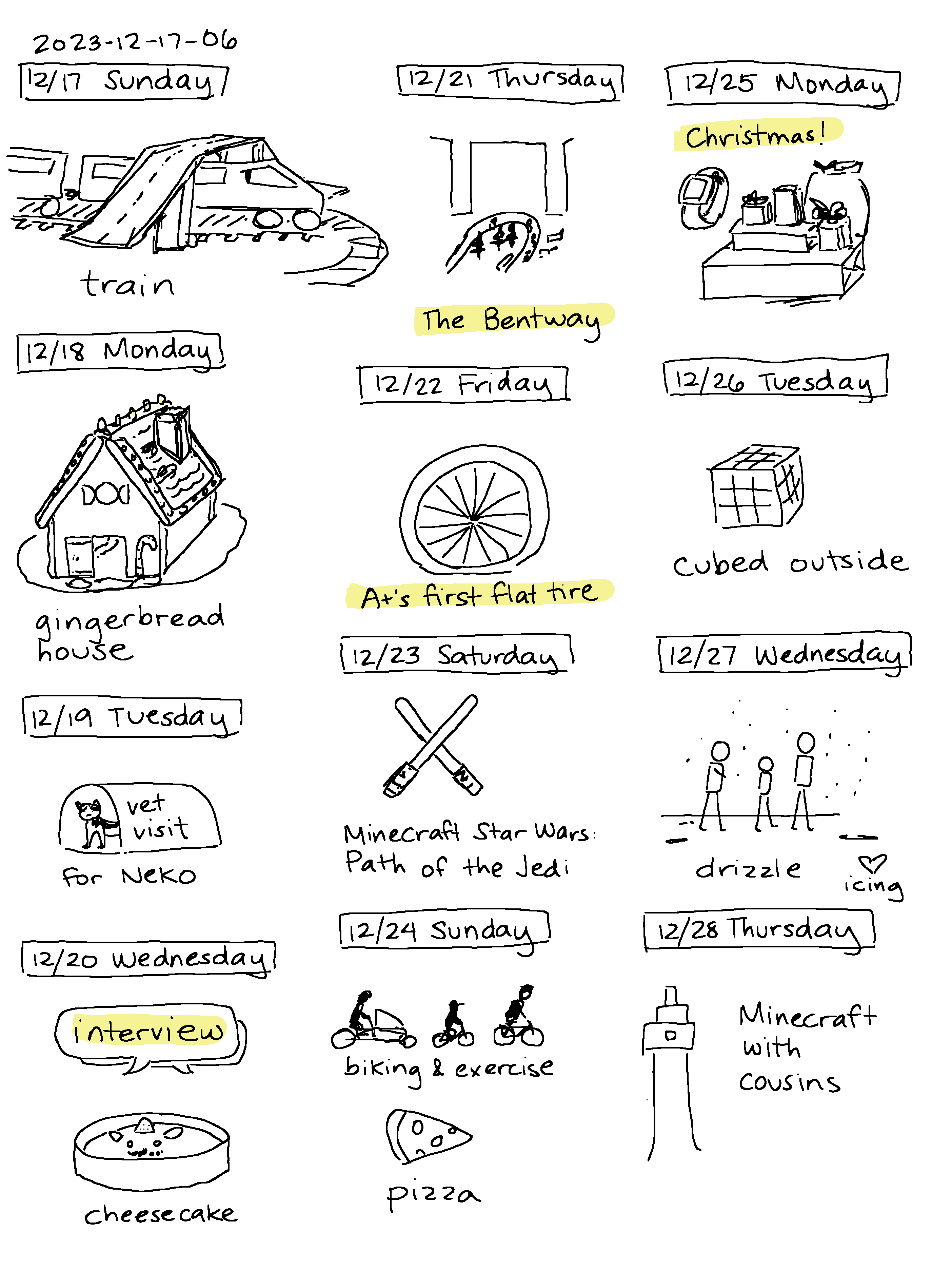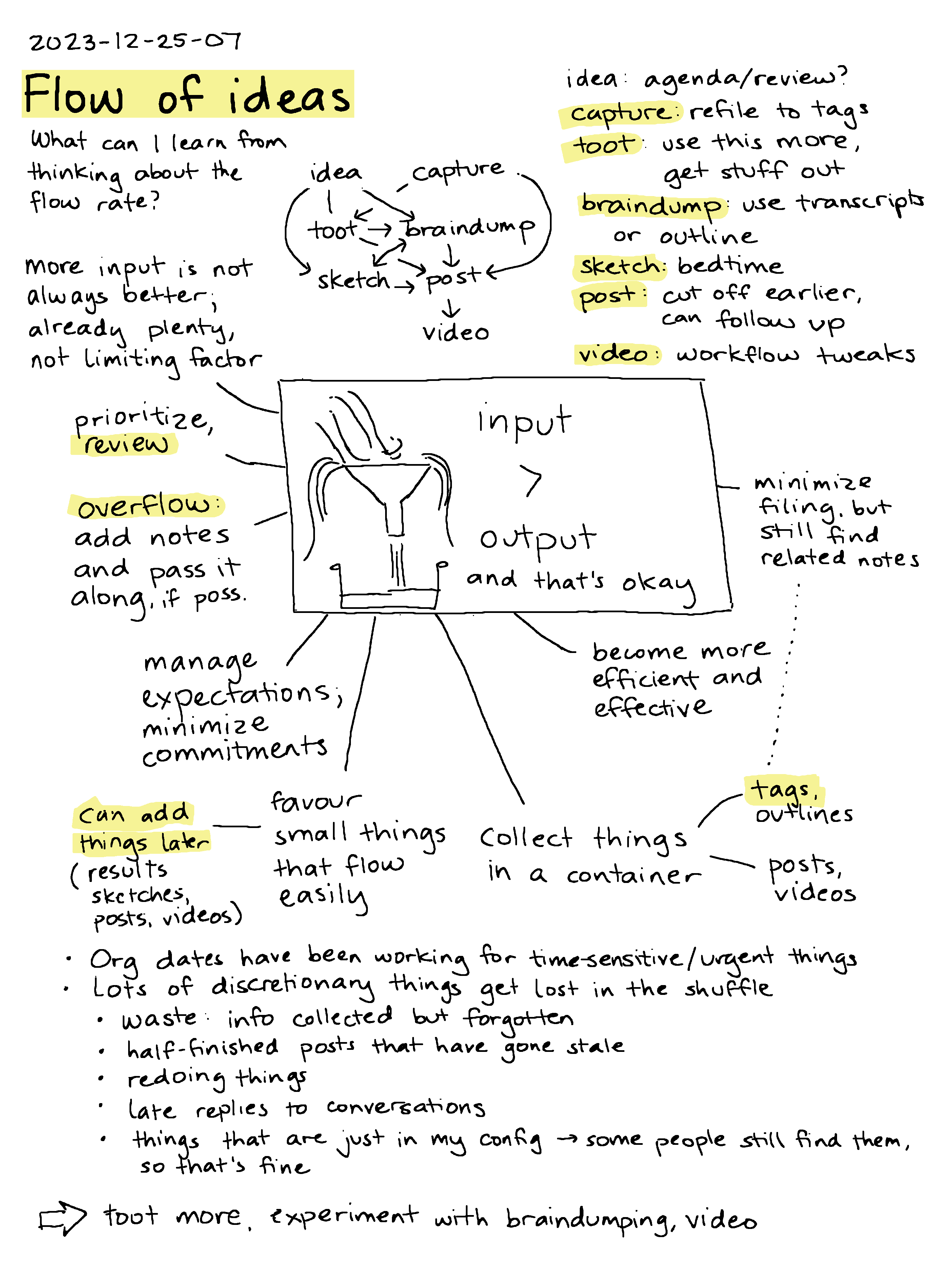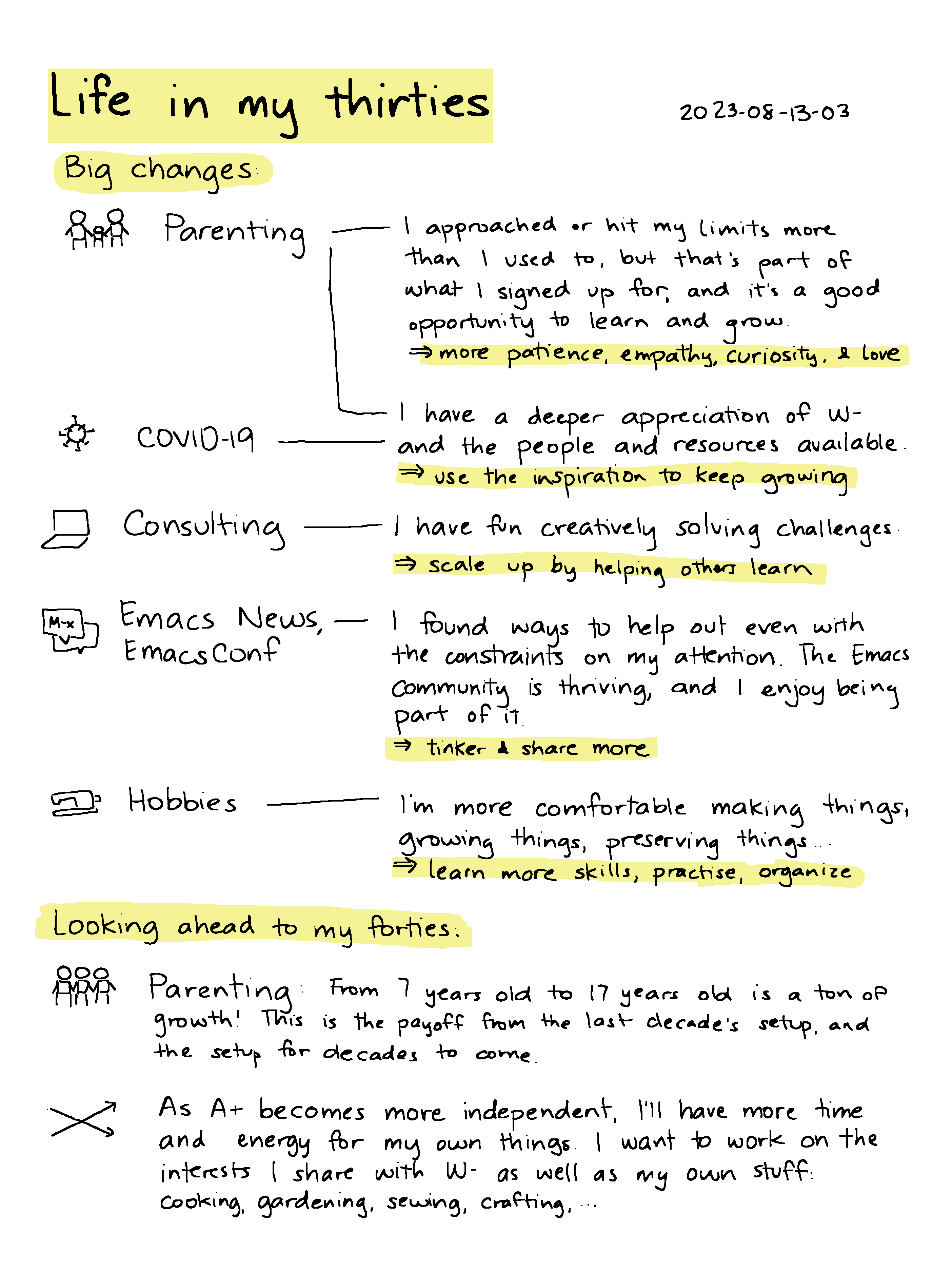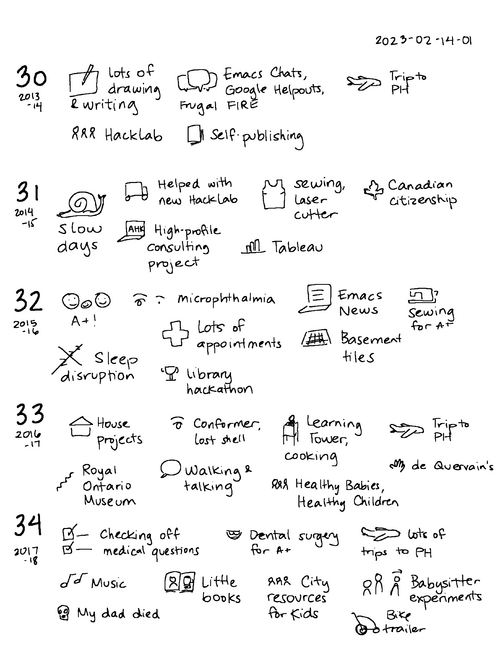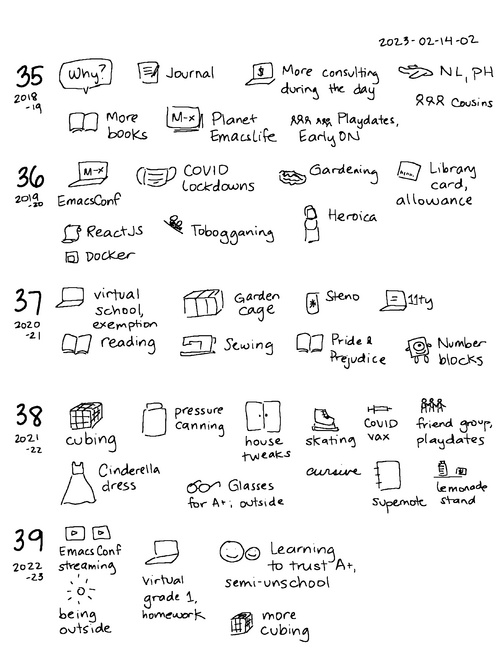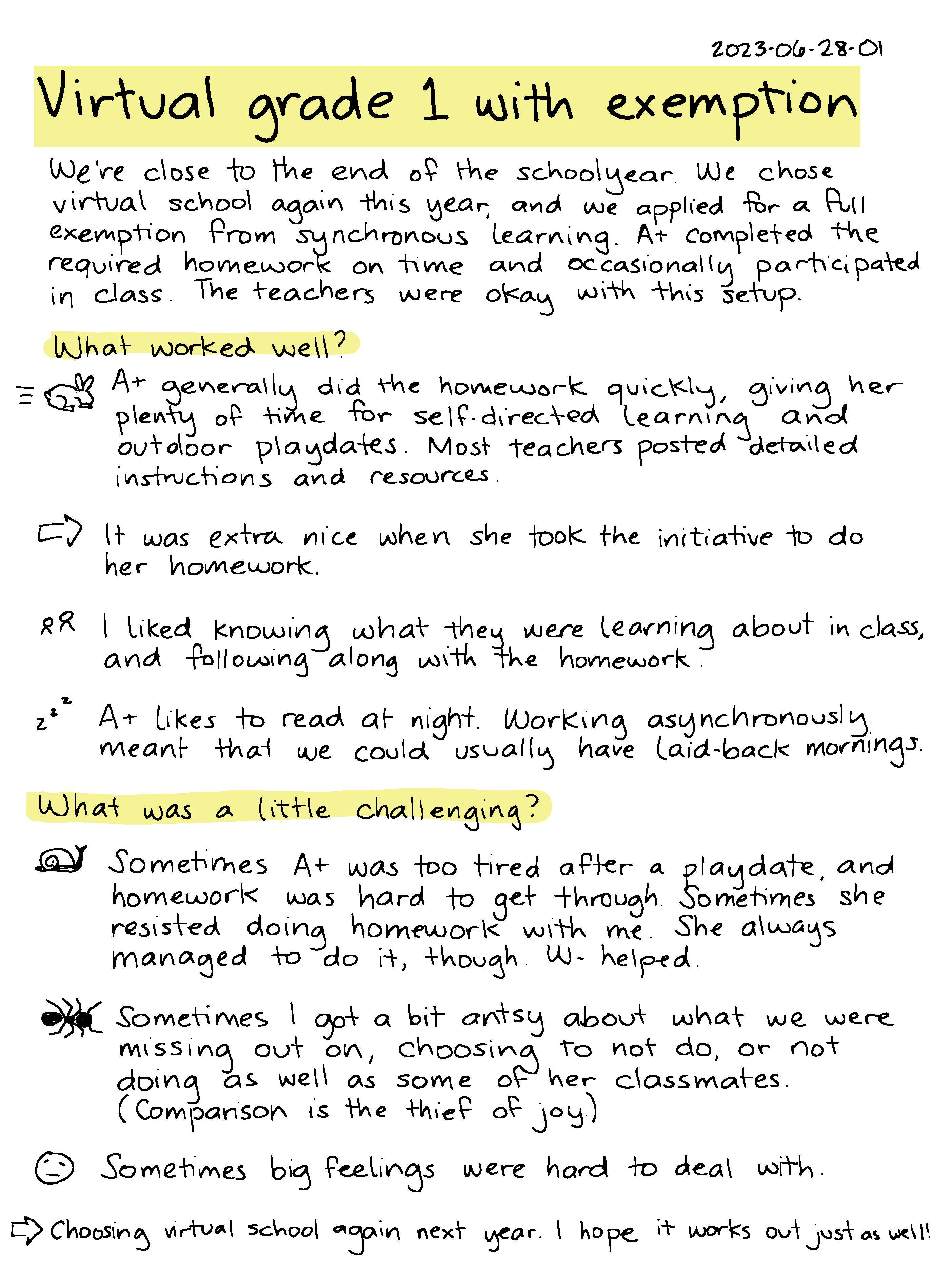Tiny chunks
| productivity, life
I want to get better at working in tiny chunks. Some of the things I find hard are:
- getting incomplete thoughts out of my head when the kiddo interrupts so that I don't get grumpy (because of the Ovsiankina effect)
- managing the stack of interrupting tasks and yak-shaving temptations
- still making time for larger projects or things with less-immediate or more uncertain payoffs
Some general ways to improve:
- Reduce friction so that more things can fit in less time.
- Take notes
- Improve workflows and tools
- Create templates
- Build momentum: focusing several chunks on one project to minimize context switches and make more progress
- Lower expectations and split things up.
- Start with a rough cut and then refine.
- Use different types of work:
- Organizing information can be easier than thinking up something new
- Recognizing things from a list can be easier than recalling them from scratch
How can I get better at using tiny chunks in different aspects of my life?
- Code:
- Now that I'm on a more powerful computer, I'm looking forward to learning how to take advantage of LSP, completion, and other modern conveniences.
- I can replace social media doomscrolling with reading APIs, guides, and code samples.
- I can take more notes and review them.
- Writing:
- If I sketch my thoughts, that can help me think through things in a more nonlinear way at the beginning. Mindmaps and sketchnotes might actually be easier than using text outlines, since I can do them off my computer.
- Dictation might help me turn other pockets of time into writing time, and then turn computer time into editing time.
- Improving my workflows makes it easier for me to get the text out into a blog post that has a sketch or a video or a screenshot.
- Drawing:
- I can ask smaller questions so that I can get to an answer faster. I also don't have to flesh out the full thought in the drawing - I can use dictation or writing to add more details.
- I can crop the image to remove the pressure to use the full page. I used to draw my thoughts on index cards. That was a good size for a small thought, and they were easier to build up into larger chunks.
- I can use visual organizers, metaphors, and other structures to help me think through things. That might also give me additional insights.
- Bigger projects: One of the things that sometimes frustrates me is having bigger projects that I can't figure out how to fit into smaller segments, or that take a lot of setup time and therefore tend to get deprioritized in favor of things with more immediate payoffs.
- I have a few 1.5-hour chunks of focused time because of A+'s virtual school, and I might be able to reserve more time eventually. It might be good to have that time when I'm not prioritizing short tasks and quick wins. Aside from that, if I get focused time in the evening, the trade-off is usually that A+ binge-watches YouTube videos when I'm not focusing on her. Sometimes I'm okay with this because I really want some thinking time. It's better when I'm getting that focused time because she's off doing something with W-, though.
- I tend to work on whatever I've been thinking about lately (availability bias), but it might be good to review longer-term projects/interests to keep them on my radar or make peace with archiving them.
- Even the stuff that feels like very slow progress can be worthwhile.
- Life:
- Sometimes I feel a little distracted by things I want to do, but it's worth figuring out how to put stuff aside so that I can play. Bluey has plenty of examples of short games that could be fun to play with A+.
- There's always time to work on health. Sometimes doing a single pushup makes it easier to do another, especially when the kiddo jumps in and starts exercising too.
- Similarly, a small chunk of time is great for tidying.

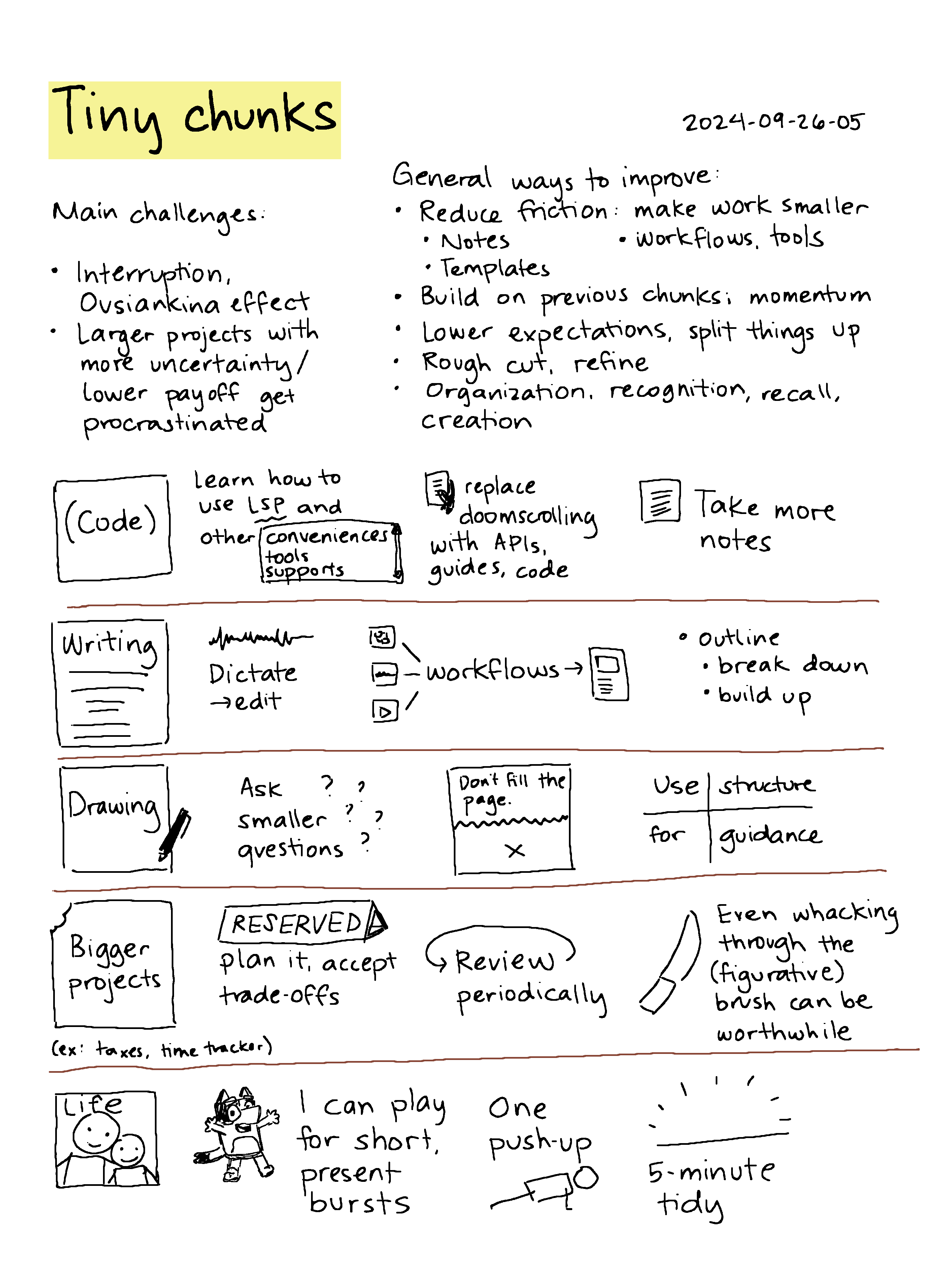

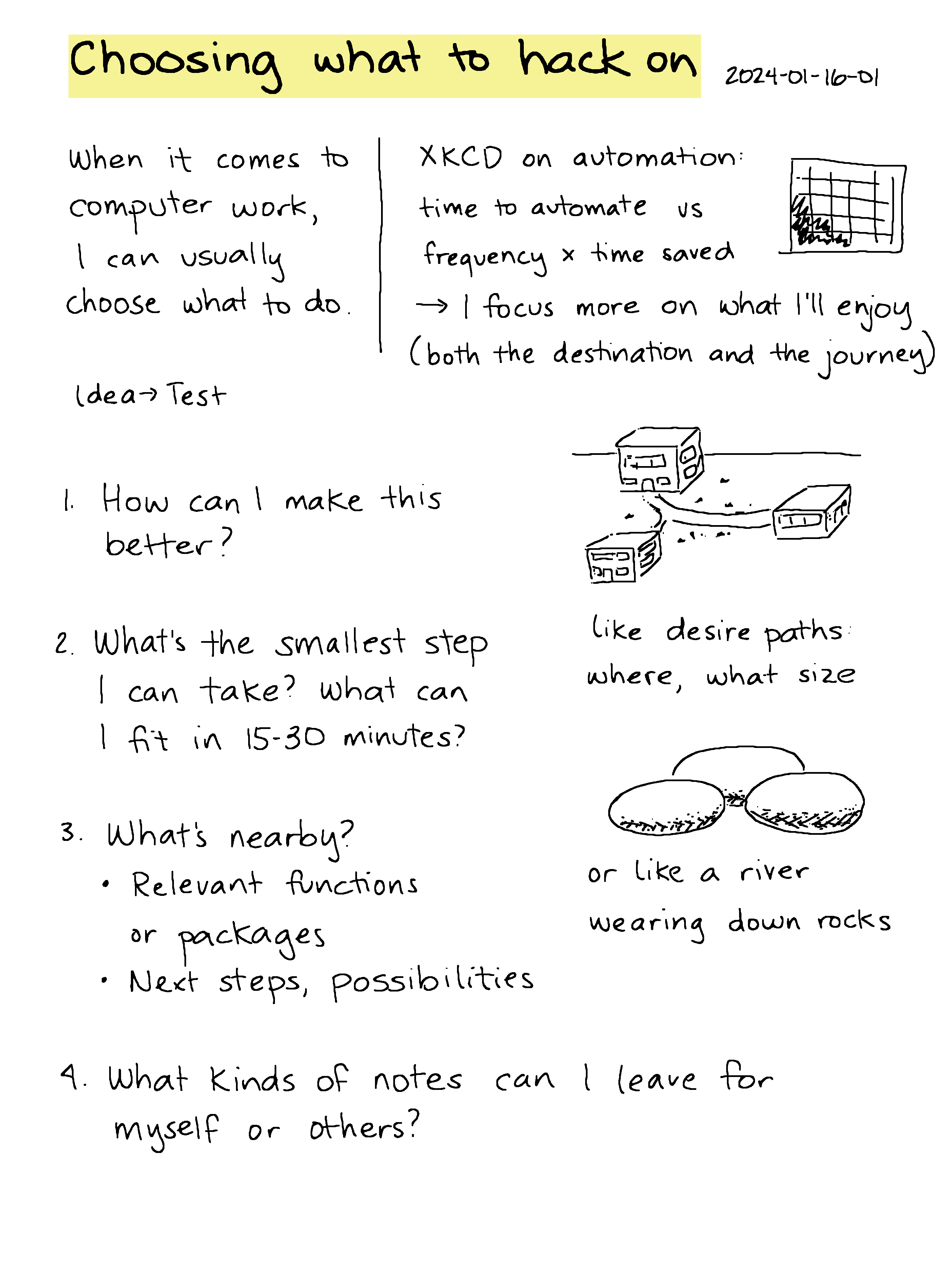
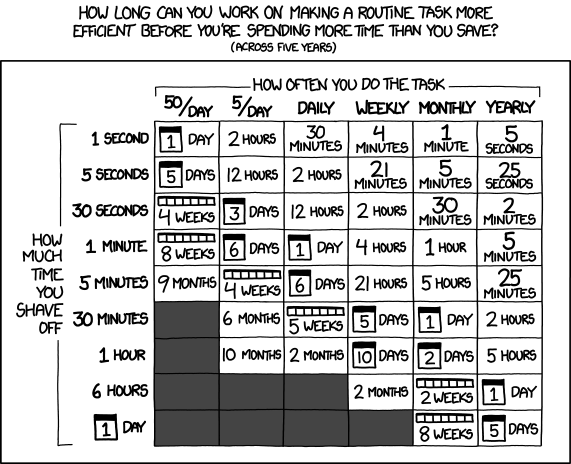 (
(